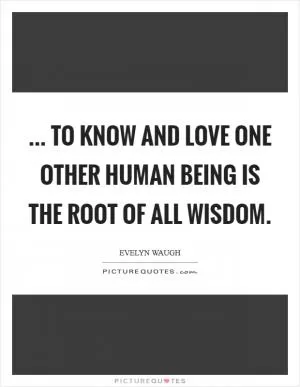One can write, think and pray exclusively of others; dreams are all egocentric

One can write, think and pray exclusively of others; dreams are all egocentric
Evelyn Waugh, the renowned English writer known for his satirical novels and sharp wit, often explored themes of selfishness, vanity, and the human condition in his works. In the context of Waugh's writing, the idea that one can write, think, and pray exclusively of others while dreams are inherently egocentric is a fascinating concept to consider.Waugh's characters are often portrayed as self-absorbed and narcissistic, consumed by their own desires and ambitions. In novels such as "Brideshead Revisited" and "A Handful of Dust," Waugh delves into the complexities of human relationships and the ways in which individuals can be blinded by their own egos. The idea that one can write, think, and pray exclusively of others suggests a selflessness and empathy that is often lacking in Waugh's characters.
In Waugh's world, dreams are portrayed as a reflection of one's innermost desires and fears. They are a window into the subconscious mind, revealing the true nature of the dreamer. Dreams are inherently egocentric because they are a product of the individual's own thoughts and experiences. They are a manifestation of the self, a projection of one's deepest desires and anxieties.
However, Waugh also explores the idea of redemption and transformation in his works. Characters such as Charles Ryder in "Brideshead Revisited" and Tony Last in "A Handful of Dust" undergo profound changes as they confront their own selfishness and vanity. Through their interactions with others, they learn to see beyond themselves and find a deeper sense of purpose and meaning.












 Friendship Quotes
Friendship Quotes Love Quotes
Love Quotes Life Quotes
Life Quotes Funny Quotes
Funny Quotes Motivational Quotes
Motivational Quotes Inspirational Quotes
Inspirational Quotes